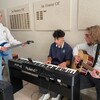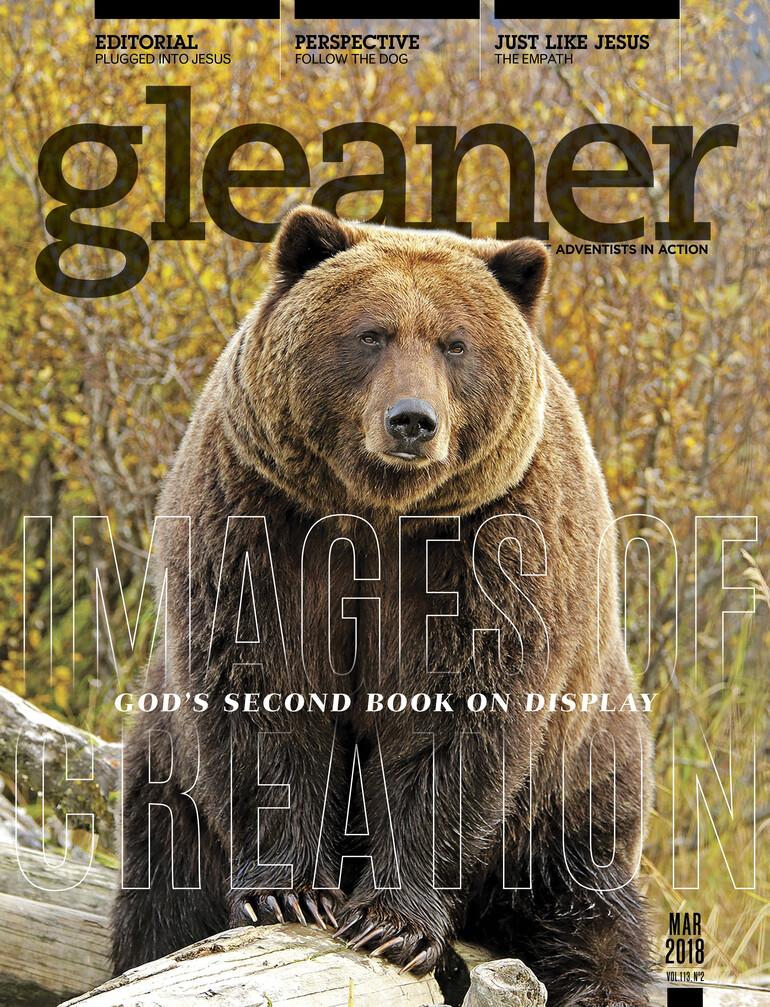Recently I bore the crushing burden of a stopover in Fiji after preaching for a camp meeting in New Zealand. More specifically, I spent two days on the remote Mana Island — population 400. This doesn’t include the resort, which, due to the off-peak season, didn’t have all that many tourists. This meant most of the white sandy beaches were vacant, and I often had the infinity pool to myself. I’ll pause to allow you time to work through your envy. Yet, while the downtime from an intense speaking schedule was welcome, I got a bit restless after the first day and decided to go exploring.
My wanderings took me to several interesting lookouts, beaches and accidentally through someone’s private property. Upon returning to the resort, I noticed a path that led to the small village that had a restaurant, backpacker hostel and a Seventh-day Adventist school. There was a sign warning me not to stray from resort grounds, but, having a fairly good idea that crime was essentially nil on the island, I took the risk. After a few minutes of walking, I found the school and several happy students.
As I observed the facilities and watched the staff interact with the students, I began to chat with one of the student missionaries serving there. This led to meeting three other Adventist college students. We had a brief chat about how long they had served, where they were from and other typical small talk. I said my goodbyes and began making my way to the other side of the village, but a gnawing feeling began to gnaw at my spirit.
I reflected on my own mission experiences and what encouraged me when I was far away from home. I thought of Rich Carlson, Union College (UC) chaplain, who visits all the student missionaries from UC and ministers to them however he can. I didn’t have much to offer, but I suspected a meal out might be nice. This feeling began to grow, and I wondered if I should turn around and extend an invitation to supper. As I pondered, I came to the end of the village, where I was greeted by a small white dog. Strays are common in Fiji, and mostly friendly, but still my defensive instincts took over, and I determined this was a great time to turn around.
My decision was reinforced by a playful nip around my ankles. Being a dog owner myself, this wasn’t cause to panic — just be mildly annoyed. “Go on!” I shouted. Even if the animal didn’t understand English, I figured it would read my tone loud and clear. The critter backed off but continued to trot by me as I made my way back through the village. Perfect. It occasionally nudged me if I stopped or tried to deviate course until we arrived back at the little school.
In his book Anatheism: Returning to God After God, author Richard Kearney describes being open to God, through the practice of hospitality and a willingness to open ourselves to the “other” (who often turns out to be God in disguise or, at the very least, a “divine appointment”). He states, “Reading the face of the other is difficult, often disorienting and puzzling, but it is never completely impossible. If it were, every meeting with the divine would be a blind date.”* Was this dog helping to orchestrate a blind date with God’s destiny? As I reflected on this, I chose to interpret its actions as a movement of the Other on my path. And, even though I was a bit nervous about inviting the student missionaries to dinner, I nevertheless sought bonding by listing off mutual friends/acquaintances and explaining the mechanics of a haystack.
My invitation was greeted enthusiastically. When I arrived to meet them in the evening, the dog, Maya (she belonged to a student at the school), trotted along with us to the restaurant. One of the students commented that she never follows them like that. Maya curled up under our table by my feet and rested while we ate. We chatted about college, church and their island experiences. After the meal, we walked back to the school. I had prayer with them, and we wished each other God’s blessings on our respective ministries.
This certainly wasn’t a compelling or dramatic outreach on my part. I don’t recall any miracle happening while we broke bread by the seaside. It was simply a spiritually lucid moment of recognizing the subtle rhythms of God and practicing the words of Jesus, “For I was hungry and you gave me food, I was thirsty and you gave me drink, I was a stranger and you welcomed me” (Matt. 25:35). The students also welcomed me as a stranger and gave me the chance to be a blessing.
Following God’s appearances as the “other” (whether a wandering minister or student missionaries, literal or metaphorical) takes a willingness to see and interpret life through a spiritual lens and take social risks. May you see, and follow, God’s appearances in your life — even if that means following a stray dog.
*Kearney, Richard, Anatheism: Returning to God After God (New York: Columbia University Press, 2011), p. 120.











